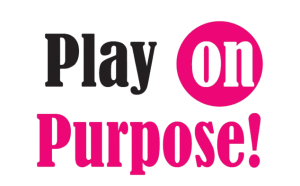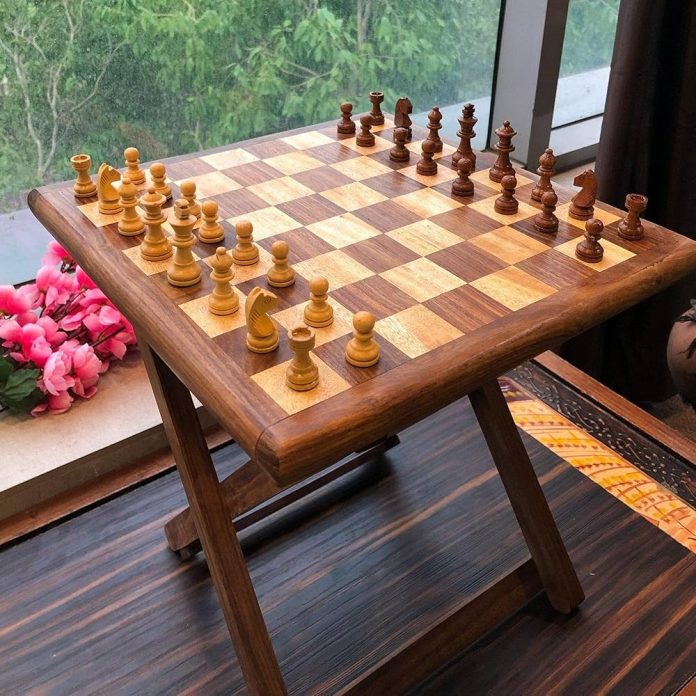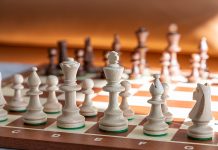Introduction: More Than Just a Game
When most people think of chess, they picture quiet concentration, a board, two players, and 64 squares. But what many don’t realize is that every move on that board mirrors the moves of life itself.
At Play On Purpose Academy, we don’t just teach chess for trophies, we use it as a powerful tool to build thinking, patience, discipline, and emotional intelligence. Chess becomes more than a sport; it becomes a training ground for better decisions, stronger focus, and a resilient mindset.
In a world where instant gratification dominates and attention spans shrink, chess stands as a timeless teacher of patience, perspective, and purpose.
1. Chess Teaches Thinking Before Acting
Every move in chess requires foresight. You can’t make decisions carelessly, each move carries consequences.
Children quickly learn that rushing leads to mistakes, while thinking ahead brings rewards.
This same principle applies in school, sports, and life.
- In chess: “If I move my queen here, what happens next?”
- In life: “If I act this way, how will it affect me and others?”
At Play On Purpose Academy, students learn to pause, analyze, and plan. That moment of thought, the ability to stop and consider options is what turns impulsive players into strategic thinkers.
2. The Power of Patience and Focus
Modern distractions make patience a rare skill. Chess helps restore it.
Each game requires sitting still, focusing deeply, and waiting for the right moment to act. For young minds accustomed to rapid entertainment, this discipline transforms their ability to concentrate for longer periods.
We’ve seen students who once struggled to sit through a 15-minute task gradually build up to full-hour lessons, thinking critically the whole time. That growth doesn’t just stay on the board, it shows up in their schoolwork, reading habits, and even their behavior at home.
Chess teaches that real progress is quiet, steady, and earned.
3. How Chess Builds Emotional Intelligence
One of the most underrated benefits of chess is emotional control.
Every player learns the pain of losing a piece or a game and how to handle that emotion constructively.
At Play On Purpose, we help students understand:
- Losing doesn’t mean failure; it means learning.
- Every mistake carries a lesson.
- Staying calm after a setback is part of strength.
When a student loses, we ask them:
“What did you learn from this move?”
That reflection builds maturity and self-awareness the essence of emotional intelligence.
Over time, students begin to value improvement over victory, and learning over ego.
4. Decision-Making and Consequences
In chess, no coach can make a move for the student. Every decision is their own, and so are the outcomes.
This independence helps children take responsibility for their actions, both in and out of the classroom.
They learn:
- Decisions require thought.
- Consequences are natural, not punishments.
- Responsibility is empowering.
This lesson is invaluable in life. Whether it’s completing homework, choosing friends, or managing time, students develop a mindset that says, “I am responsible for my choices.”
That sense of accountability nurtures confidence, maturity, and leadership exactly what Play On Purpose Academy stands for.
5. Chess Improves Memory and Cognitive Skills
Science backs it up: studies show that children who play chess consistently perform better in problem-solving, logic, and memory tasks.
Chess activates both sides of the brain:
- The left side for logic, calculation, and analysis.
- The right side for creativity, pattern recognition, and intuition.
Every game is a mental gym session, improving recall, focus, and imagination all at once.
It’s why many teachers and parents notice improved academic performance in children who take chess seriously.
Our students don’t just memorize moves; they develop a memory system that helps them retain lessons, apply logic, and see patterns everywhere in math, reading, and real-world problem-solving.
6. The Art of Perspective and Planning Ahead
Chess teaches perspective the ability to see situations from different angles.
You must think not only about your move, but your opponent’s possibilities, their plans, and how they might respond.
This habit of “thinking like the other side” builds empathy and strategic awareness. It helps children understand that every person or challenge has a perspective. In life, that translates to better communication, negotiation, and teamwork.
Planning ahead becomes second nature. Students start asking themselves:
- “What’s my goal here?”
- “What’s my next step?”
- “What might go wrong, and how do I prepare?”
That’s not just chess training that’s life training.
7. Handling Pressure and Building Composure
Tournament chess introduces children to healthy pressure. time limits, competition, and uncertainty.
At first, many find it stressful. But through experience and mentorship, they learn how to manage those emotions, breathing, thinking, and trusting their preparation.
Over time, their composure grows. A student who can remain calm under time pressure on a chessboard can also stay composed during exams, presentations, or interviews later in life.
At Play On Purpose, we emphasize that pressure isn’t the enemy, it’s a chance to practice focus and resilience.
8. Chess and the Growth Mindset
A fixed mindset says, “I can’t do this.”
A growth mindset says, “I can’t do this yet.”
Chess naturally teaches the second mindset. Every player starts by losing and losing often. The only way to improve is to study, reflect, and try again.
Through regular feedback and analysis, students learn that improvement comes through effort, patience, and consistency. The more they practice, the better they become.
This mindset carries over to every part of life:
- A tough math problem? “I’ll figure it out.”
- A lost match? “I’ll come back stronger.”
- A personal challenge? “I’ll learn from this.”
That’s why Play On Purpose doesn’t just produce chess players, it produces learners for life.
9. Teamwork and Respect
Though chess is often played individually, the learning environment at our academy promotes team spirit and respect. Students celebrate each other’s progress, analyze games together, and share strategies.
They learn to give and receive feedback respectfully a key life skill often overlooked in competitive settings.
Success becomes collective, not selfish.
Even in tournaments, we teach our players to shake hands before and after every match because respect always outweighs results.
10. Chess Builds Confidence Through Mastery
Confidence doesn’t come from easy wins, it comes from hard-earned growth.
Each skill a student masters, from understanding checkmate patterns to planning an opening, reinforces the belief: “I can learn anything if I try.”
That’s a life-changing realization.
At Play On Purpose, we track every student’s journey, not just wins, but milestones:
- Solving a tough puzzle.
- Beating a higher-rated player.
- Handling a loss gracefully.
- Teaching another student a new idea.
These moments of mastery are celebrated because they prove that confidence isn’t gifted it’s built.
11. Why Parents Love Chess Education
Parents often tell us that chess has changed their child’s habits at home.
They notice:
- More patience when solving problems.
- Greater focus on homework.
- Less frustration when things don’t go perfectly.
- More meaningful conversations about choices and consequences.
That’s the hidden beauty of chess: it teaches life lessons naturally.
It’s not forced or lectured, it’s experienced through play.
When children learn these lessons at an early age, they carry them through school, relationships, and careers.
12. How Play On Purpose Academy Integrates Chess into Life Skills
Our curriculum goes beyond moves and tactics. We combine chess training with mindset coaching, goal-setting, and personal reflection.
Each session blends:
- Practical chess instruction – openings, tactics, endgames.
- Character development – patience, integrity, focus.
- Performance mindset – confidence, resilience, self-belief.
We guide students to connect the dots between what happens on the board and what happens in life. Every move becomes a metaphor for choices, growth, and purpose.
13. The Future Belongs to Thinkers
In an age dominated by automation and instant answers, real success belongs to those who can think critically, adapt quickly, and stay composed under pressure. Chess develops those exact abilities.
That’s why Play On Purpose Academy sees chess not as a pastime but as a preparation for life.
It equips young learners with tools to solve problems, manage emotions, and think independently, skills that outlast any tournament.
14. The Legacy of Learning Through Chess
Many great leaders, entrepreneurs, and innovators have credited chess with shaping their strategic mindset.
From military generals to CEOs, the principles remain the same:
- Think ahead.
- Evaluate options.
- Accept risk.
- Learn from mistakes.
- Stay calm under fire.
When children learn these principles early, they carry them forward into every aspect of adulthood.
At Play On Purpose, our mission is to make those lessons accessible, not just to future champions, but to future thinkers.
15. Conclusion: Every Move Matters
Every move in chess tells a story, a decision, a risk, a lesson.
Through the 64 squares, children learn to think deeply, act wisely, and handle both victory and defeat with grace.
At Play On Purpose Academy, we teach chess as a language of life:
- Every position is a problem to solve.
- Every loss is a lesson to reflect on.
- Every win is a reminder of growth through effort.
When a child learns to play chess with purpose, they’re not just becoming better players — they’re becoming better humans.
Join the Journey.
🧩 Enroll at Play On Purpose Academy today and help your child discover how the chessboard can build a stronger, wiser, and more confident thinker.



